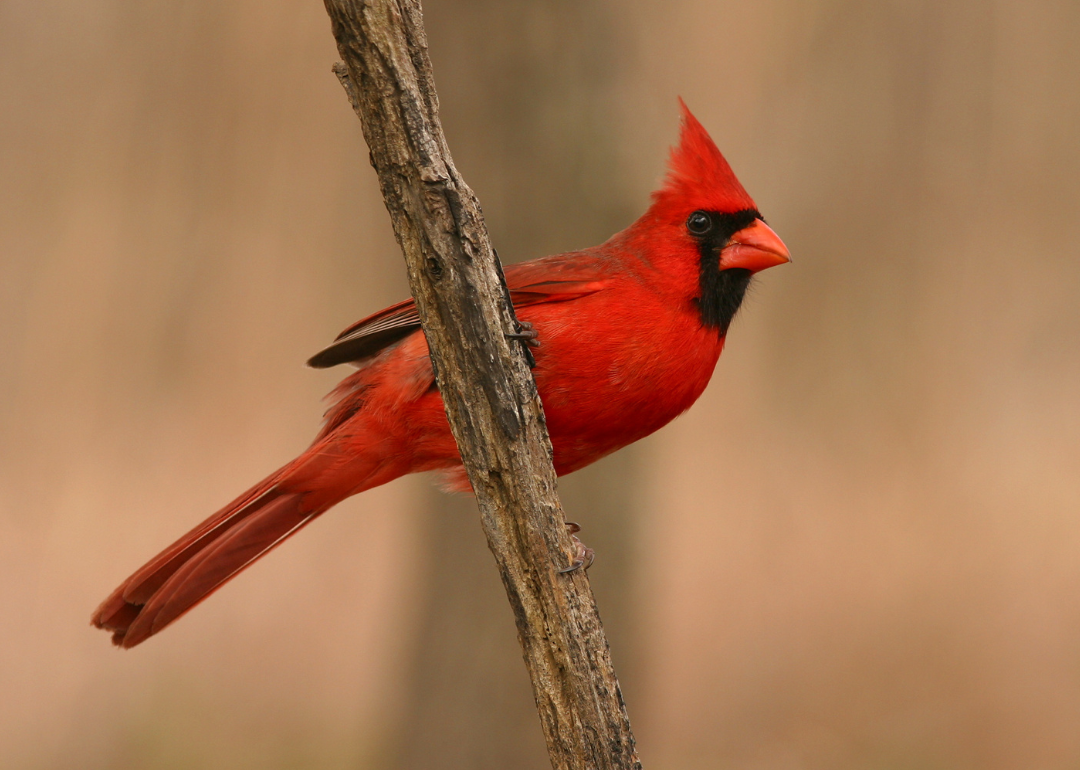
Do you know New Hampshire's official state symbols?
Each state in America boasts its own culture, history, and natural beauty. To represent such diversity, people from these states have chosen their own set of symbols and customs. Specific flags, songs, mottos, flowers, and even fruits commemorate the uniqueness of individual states. Some of these symbols border on the bizarre: Texas, for example, has made the Dutch oven its official state cooking pot. Other symbols are more universal, like state birds.
Many people remember learning about their states' history back in elementary school. But can you still remember your state bird? How about your state flower? To test your state knowledge, Stacker compiled a list of symbols in New Hampshire.
Clue: New Hampshire state fish
Clue (freshwater): This fish is instantly recognizable by its brilliant colors and patterns. Found mostly in clean, cool mountain streams, they have yellow, elongated spots covering their bodies that can range from red to orange to olive green.
Clue (saltwater): Rockfish are big predators—they can get to be almost 70 pounds—found all along New Hampshire's shoreline. Young spawn in streams and estuaries and made a home in saltwater habitats by winter after they hatch.
Answer: New Hampshire state fish
Answers: Brook trout (freshwater), striped bass (saltwater game fish)
Clue: New Hampshire state mammal
New Hampshire has two state mammals. One is the ever-popular white-tailed deer, and the other is an animal that sometimes eats small deer, although its diet is more commonly rabbits and rodents. Once hunted as a predator on livestock, populations have rebounded since New Hampshire stopped allowing hunting in 1989. Their name comes from their characteristic short “bobbed” tail.
Answer: New Hampshire state mammal
- State mammals: White-tailed deer, bobcat
Clue: New Hampshire state song
New Hampshire recognizes no fewer than nine official state songs, although eight of them are alternates. The one at the top of the heap was written in 1926 but wasn't officially adopted until 1949.
Answer: New Hampshire state song
- Answer:
--- State song: "Old New Hampshire"
--- Honorary songs: "New Hampshire, My New Hampshire," "New Hampshire Hills," "Autumn in New Hampshire," "New Hampshire's Granite State," "Oh, New Hampshire," "The Old Man of the Mountain," "The New Hampshire State March," "New Hampshire Naturally"
Clue: New Hampshire state insect
State insect: This species has an extremely widespread distribution, with populations found from Europe to Australia to Mongolia to central Africa to North America. There was once a dense population on the island of Malta, though this community has been steadily declining in recent years.
State butterfly: This silver or blue-winged insect is known to occupy open, sunny habitats. It is closely associated with the wild blue lupine flower, which provides a central food source.
Answer: New Hampshire state insect
- State insect: Seven-spotted ladybug (Coccinella septempunctata)
- State butterfly: Karner blue butterfly (Lycaeides melissa samuelis)
Clue: New Hampshire state tree
The state tree of New Hampshire has pale bark, both lightly colored and hardy enough that you can peel off pieces and write letters on them. For the Algonquin Native Americans who lived in this state before settlers arrived, this bark was also a source of food, and they tapped the tree for syrup, used as the basis for tea, vinegar, and sugar.
Answer: New Hampshire state tree
Answer: American white birch (Betula papyrifera)
Clue: New Hampshire state bird
New Hampshire might be small, but its official bird may be the flashiest of all. Males of this species boast deep rosy hues, noisy songs, and big beaks.
Answer: New Hampshire state bird
Answer: Purple finch
Clue: New Hampshire state flower
Imported from England, New Hampshire's state flower is said to have been discovered by historian Leon Anderson. Robust and sturdy, its aesthetic beauty and fragrance are admired not just by New Hampshire residents, but gardeners worldwide. These flowers can withstand cold winters, growing better in areas with frost.
Answer: New Hampshire state flower
Answer: Purple lilac



